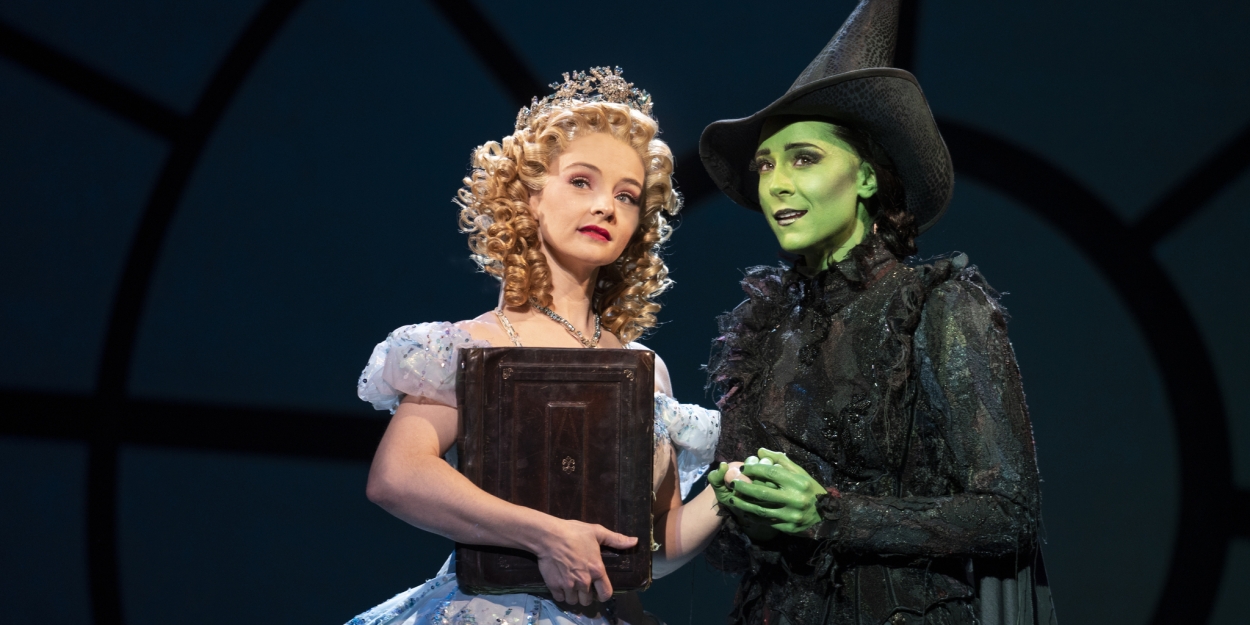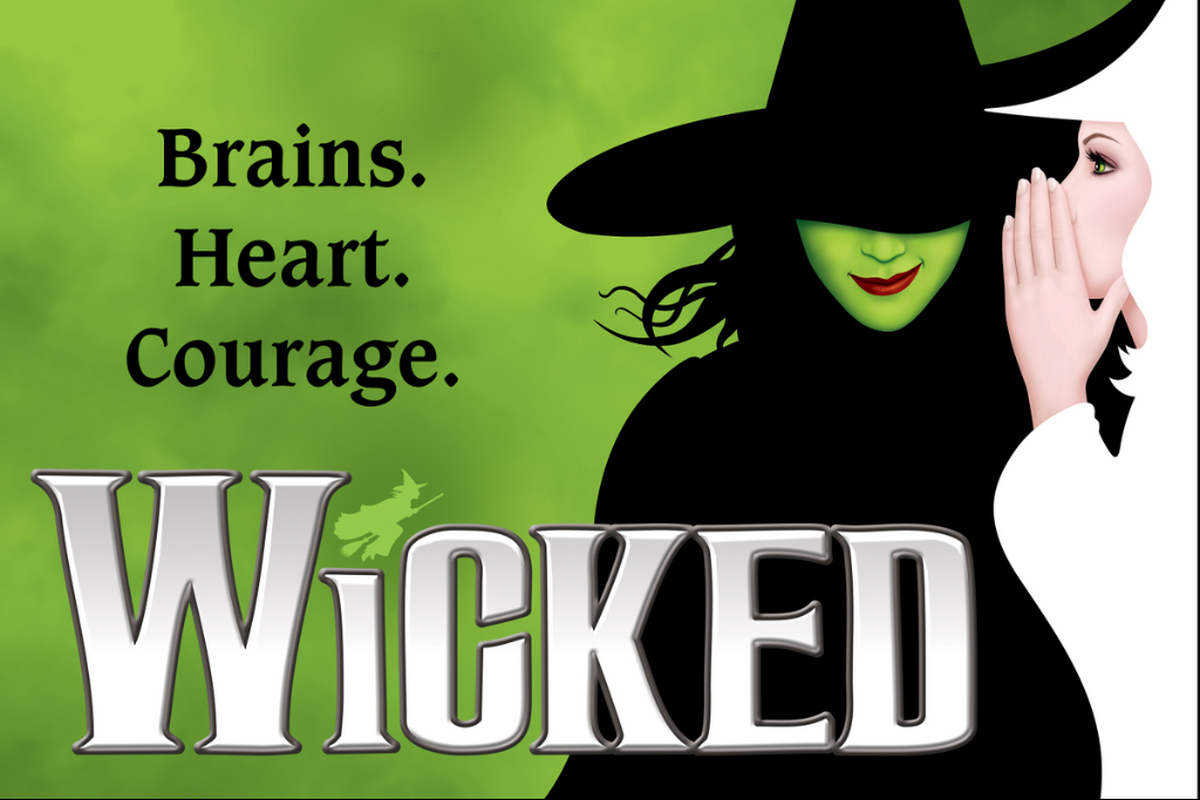Review: Timely as Ever, WICKED Defies Gravity... And Society, Too — Dr. Phillips Center
The smash-hit musical only gets more relevant with time, as its current touring cast finds new opportunity for interpretation.

WICKED is a wily piece of pop. It turns 20 this year, but you'd never know that sitting in Dr. Phillips Center for the show's fourth visit to Orlando. Its shrewd indictment of society's worst instincts and most seductive assumptions still tear through a room like a twister.
"I don't see why you can't just teach us history," Galinda complains to her progressive and discriminated-against professor, "instead of always harping on the past."
It's almost impossible to believe the line originated in 2003, when Wicked debuted as sly commentary on post-9/11 otherism, and not this very week in response to Florida's ban on AP African American Studies.
Such is the searing timelessness of a show that sets itself inside a proscenium purporting to be a giant clock.
Galinda is the teenaged Ozian mean girl that Munchkins will one day hail as Glinda the Good Witch. But here, in Wicked's revisionist prequel to The Wonderful Wizard of Oz, she's the spitting image of privilege. Her snobbery meets its match in Elphaba, the freshman she's forced to room with at Shiz University. Unlike perky, popular Galinda, Elphaba is acerbic, unfashionable, and... green.
Yes, Elphaba is the future Wicked Witch of the West. And Stephen Schwartz's musical, with a book by Winnie Holzman, wonders why she's wicked - or whether maybe the wicked ones are we.
Its songbook is the sonic equivalent of Technicolor, a veritable Emerald City of songs that slap. You undoubtedly know "Defying Gravity," a song to which approximately 99.3% of the Dr. Phillips audience gratefully resisted adding their unsolicited voices on Thursday night. That left room for the star of the show, Lissa deGuzman, to belt that ballad on a broom like nobody's business - and like nobody's Elphaba.
If Idina Menzel were the witch of the north, Margaret Hamilton the south, and... let's say... Liz Lemon and Rachel Maddow the east and the west, deGuzman's Elphaba would be compass rose. She leans into the character's affable sarcasm with intellectualism and just a hint of politely-restrained elitism too, reminding us that Elphaba's power and complexion aren't all that set her apart. DeGuzman seems to deliberately incorporate Hamilton's 1939 screen affect in her vocal performance, and the effect is tremendous. But her song stylings evolve throughout the show as her character grows. There's a rangy, Sara Bareilles-ish singer-songwriter quality to it, resisting full-blown divadom til the end of Act II so that "No Good Deed" can be as emotionally unbridled as it ought to be.
Jennafer Newberry, too, seems to have 1939 on the mind. Her Galinda taps into all of Kristin Chenoweth's operatic sweet-sour-and-flowered trilliness, but she adds a bit of Billie Burke to the mix, putting a perky pink point on the prequel of it all. Together, she and deGuzman have chemistry worthy of whatever's in the Wizard's elixir. It pairs nicely with local favorite Jordan Litz as love interest Fiyero, a role that would tend toward stock without Litz's easy charisma.
Likewise, Natalie Venetia Belcon (the original Gary Coleman in Broadway's Avenue Q) brings a full voice to Madame Morrible, a part that sometimes gets by with less than she brings it. Belcon makes Morrible's pivotal arc believable. And John Bolton approaches The Wizard as an earnest fraud rather than the carny-like conman we so often see in Wicked. In this way too, this tour cast takes a cue from MGM's classic film.
Those homages to 1939 are significant because Wicked derives its social power from that film's unique cultural ubiquity. The show begins in media res - it's the end of the story we know, and yet it's immediately clear that we're going to learn something new about what came before... and what comes after. That is an irresistible premise to a society that has much of its identity wrapped up in yellow bricks and rainbows.
It's amazing that a musical so poppy - and popular - can be so subversive, which is to say Wicked. And while it's easy for us to identify with Elphaba, fancying ourselves the misunderstood protagonists, what the show really dares us to do is consider that we might be wrong about who's good and bad and which side we're on. Lest any of us feel certain that we are an Elphaba, let us relisten to "No One Mourns the Wicked" and ask how recently our own thinking has echoed Oz's moral panic, populist knee-jerk, or its tendency to condemn.
If only the world were as empathetic as this show's popularity suggests it could be. When we click our heels to go home, may we all take its lessons with us.
WICKED runs in Orlando through February 12, 2023. Tickets and season subscriptions are available from the Dr. Phillips Center box office.
What do you think of WICKED on tour? Let me know on Twitter @AaronWallace.
Photo: Jennafer Newberry as Glinda and Lissa deGuzman as Elphaba in the National Tour of WICKED, photo by Joan Marcus. Used with permission, courtesy of WICKED and Dr. Phillips Center for the Performing Arts.
Reader Reviews




